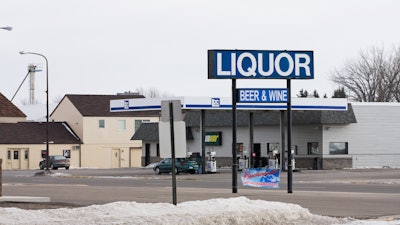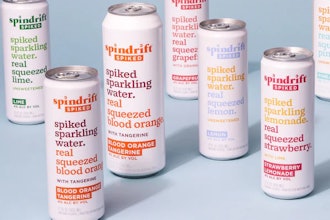
ST. PAUL, Minn. (AP) — Minnesota lawmakers are considering a lifting a cap on growler sales, a high priority for the state's craft brewers, and letting local distilleries sell normal-sized bottles of their spirits direct to drinkers.
The bill slated for debate in the House on Wednesday would further chip away at a system that long required most beer, wine and spirit sales in Minnesota to go from producers to wholesalers to retailers, with little room for direct sales to consumers. That system started eroding in 2011 when the state first allowed brewers to operate taprooms; more cracks developed in 2017 when the state allowed Sunday liquor store sales.
The bill was written to benefit the state's five largest breweries: Summit in St. Paul, August Schell in New Ulm, Surly and Fulton in Minneapolis, and Castle Danger in Two Harbors. They've grown in popularity amid the craft beer boom to the point that they can no longer sell growlers — half-gallon jugs to go — from their taprooms.
That's because the state law that allowed growlers in the first place limits the privilege to breweries that produce under 20,000 barrels a year. The proposal would raise that cap to 150,000 barrels, allowing room for all of them. It would also let certain small brewers sell cans to go.
“This bill has been long-sought and is much needed for the survival of craft beer in this state,” Robert Galligan, a lobbyist for the Minnesota Craft Brewers Guild, said in a letter to lawmakers last month. “For too long, the brewers of Minnesota have been restricted in their rights as American entrepreneurs, and although this bill would not equal the playing field with most every other state in the nation, it does bring us closer.”
Around two dozen Minnesota distilleries would get to sell one standard 750 milliliter bottle to a customer per day at their cocktail rooms, up from the current 375 milliliter limit.
And wine lovers would get more chances to buy direct from their favorite vineyards out of state. It would allow wineries to ship up to 12 cases of wine per year to an individual, up from the current two cases, if the producers get licensed and pay the applicable taxes.
But supermarket sales of wine, spirits and strong beer would remain limited to retailers that operate separate liquor stores. Minnesota would remain the last state restricting regular grocery and convenience stores to low-alcohol 3.2 beer.
Even though there's only a week and half left in the legislative session, looser liquor laws may stand a chance of passage in the Senate, where the key committee chairman, Republican Sen. Gary Dahms, of Redwood Falls, has long been reluctant to tamper with the state's liquor laws without the agreement of all competing stakeholders.
“Those conversations are ongoing. ... There might be some opportunity there to find some common ground,” Republican Senate Majority Leader Jeremy Miller, of Winona, told reporters Tuesday.






















